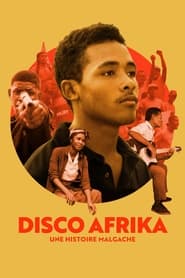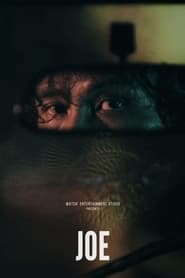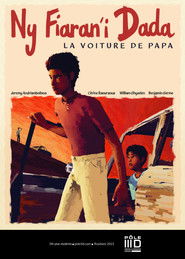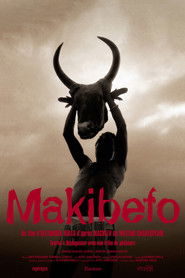kategori film bahasa malagasy
 The MalokIla Zeparsa movie while introducing...
The MalokIla Zeparsa movie while introducing...Malok’Ila 16 2024
The Malok’Ila Zeparsa movie, while introducing new faces, remains faithful to the original spirit of the series. Among those new characters, Rajao Junior, bringing a new dynamic to the story as a courageous orphan, aged around 12 years old. His character, true spiritual heir of Rajao, combines comedy and intelligence, positioning himself as the ideal sidekick of the protagonist. Through a touching narration of daily life, the tribulations of adolescence and family dynamics, the film transports us to varied settings, from Nosy Be to Ankadivoribe, from Antananarivo to Bongolava.
 Madagascar nowadays Kwame 20 struggles to make...
Madagascar nowadays Kwame 20 struggles to make...Disco Afrika: A Malagasy Story 2023
Madagascar, nowadays. Kwame, 20, struggles to make a living in the clandestine sapphire mines. An unexpected event takes him back to his hometown. As he reunites with his mother and old friends, he finds himself confronted with the rampant corruption plaguing his country. He will have to choose between easy money and loyalty, between individualism and political awakening.
 How far can we go to...
How far can we go to...JOE 2022
How far can we go to get what we want? Joe despairs at not being able to save his daughter who suffers from an incurable illness. The meeting of a strange person who promises him a miracle then gives him a glimmer of hope. But it will also take him into an infernal spiral, taking with him two women in search of a new life.
 A mishap caused a new argument...
A mishap caused a new argument...Malok'ila 2 2007
A mishap caused a new argument between the two protagonists families and ended up postponing the marriage plan between Johary and Bakoly again indefinitely. This painful interlude aside, some collaborators of Johary and Bakoly with the complicity of Landy, in love with Johary, are doing everything to ensure that the couple's project does not succeed.
 The story takes place in a...
The story takes place in a...Malok'ila 2007
The story takes place in a hospital. The new and young head doctor Johary, recently returned to the country after brilliant studies abroad, falls madly in love with one of the nurses, Bakoly, who works under his orders. However, very serious disputes oppose the two families. Against the backdrop of a crime of passion perpetrated by someone we did not expect, gags and dramatic situations follow one another at the polyclinic, in the village, in the fields and even at the temple. Bakoly is ready to sacrifice her dream and her romance when an unexpected event occurs. The real culprit is unmasked, but everything is not in order...
 Tabataba tells the story of a...
Tabataba tells the story of a...Tabataba 1989
Tabataba tells the story of a small Malagasy village during the independence uprising which took place in 1947 in the south of the country. For several months, part of the Malagasy population revolted against the French colonial army in a bloody struggle. The repression in villages that followed was terrible, leading to fires, arrests and torture. Women, children and the elderly were the indirect victims of the conflict and suffered particularly from famine and illness. One leader of the MDRM Malagasy Party, which campaigns for the independence of the country, arrives in a village. Solo (François Botozandry), the main character, is still too young to fight but he sees his brother and most of the men in his clan join up. His grandmother, Bakanga (Soavelo), knows what will happen, but Solo still hopes his elder brother will return a hero. After months of rumours, he sees instead the French army arrive to crush the rebellion.
 The story of Madagascar from 1895 to 1975...
The story of Madagascar from 1895 to 1975...Mad 47 1987
The story of Madagascar from 1895 to 1975: colonization, war, revolt, independence. Since the movie is a historical drama, the Malagasy government forced the director to modify the film so that it was in accordance with the Socialist Revolutionary ideas.
 Two brothers in Madagascar have to...
Two brothers in Madagascar have to... By committing suicide on the Barikadimy...
By committing suicide on the Barikadimy... Fourteenth instalment of the franchise
Fourteenth instalment of the franchise Portrays the farfromaverage life of a...
Portrays the farfromaverage life of a... Tenth instalment of the franchise which...
Tenth instalment of the franchise which... Third movie of the Play Boys...
Third movie of the Play Boys... Eigth instalment of the franchise in...
Eigth instalment of the franchise in... Seventh instalment of the franchise
Seventh instalment of the franchise Fifth instalment of the franchise
Fifth instalment of the franchise Fourth instalment of the franchise focusing...
Fourth instalment of the franchise focusing... Third instalment of the franchise following...
Third instalment of the franchise following... Macbeth the Thane of Glamis receives...
Macbeth the Thane of Glamis receives...